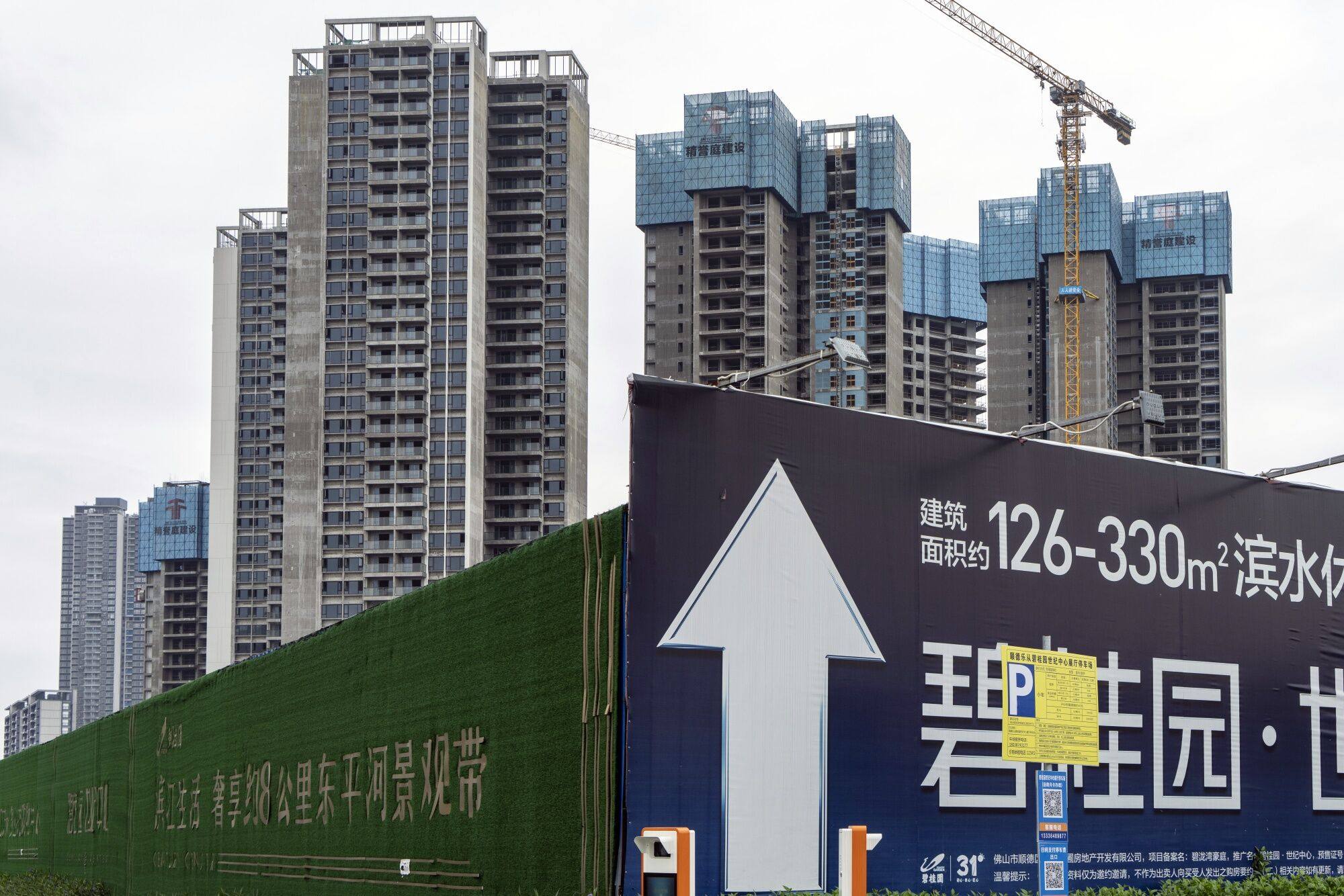
Chinese developer Midea Real Estate’s Hong Kong shares surge 100% on spin-off plan
- The developer plans to demerge its property development arm, offering shareholders the option of buying out their shares at a 57 per cent premium
Shares of Midea Real Estate Holding more than doubled in intraday trading on Monday after the company announced a plan to privatise its property development arm, a move that could cut risks associated with mainland China’s crisis-ridden industry.
The Foshan-based developer will spin off the property development and sales (PD&S) business by transferring shares to majority shareholders through “a distribution in specie”, according to a filing to the Hong Kong stock exchange on Sunday evening. Distribution in specie means transferring the ownership of an asset from one company to another in its current form.
Shareholders have the option to receive cash instead of shares. Those who opt for cash will be paid HK$5.90 per share, a 57.33 per cent premium over the last closing price on Friday.
Midea’s shares closed nearly 70 per cent higher at HK$6.37.

“While the group has maintained healthy financial ratios and managed to satisfy the requirements of the ‘three red lines’ … the group still incurs significant burdens and liabilities to support its PD&S business,” Midea said.
“The separation ... will reduce the liabilities of the group and credit risks associated with the asset heavy nature of the real estate development business,” it said, adding that the disposal could also help the company streamline its operations and focus on the rest of its asset-light business, which has higher profit margins compared with the property development business.
Since the assets to be spun off are very large, accounting for more than 75 per cent of the company’s total value, the proposal needs to be approved by independent shareholders at an extraordinary general meeting (EGM).
The EGM will be held on September 2, according to the filing.
Some of the company’s senior management have been associated with appliance maker Midea Group in the past, but there are no direct financial links between the two namesake companies.
Midea’s decision to spin off its real estate business from the listed entity is a surprise because unlike other industry peers the company’s operations are quite stable, said Yan Yuejin, director of the Shanghai-based E-house China Research and Development Institute.
“However, Midea is not reacting to the debt crisis facing China’s property industry, rather it is making proactive adjustments,” he said.
The company has managed to keep its debt under control. It had short-term borrowings of 12.2 billion yuan (US$1.7 billion) at the end of 2023, nearly 10.6 per cent lower than a year earlier, according to its annual report. Long-term borrowings had declined by more than a quarter to 25.8 billion yuan. Net profit fell to 913.5 million yuan last year, from 1.7 billion in 2022.
China’s struggling property sector shows little sign of revival despite ambitious rescue measures introduced by central and local authorities to support developers and homebuyers.
In May, the nation’s top 100 developers posted a 33.6 per cent year-on-year slump in new home sales. Total sales in the first five months of the year fell by 44.3 per cent compared with the same period last year, according to data from China Real Estate Information Corp.
Home prices across the country slumped by the most in nearly a decade in May, with prices of new residential units dropping 0.71 per cent month on month, while prices of secondary homes fell 1 per cent, according to official data.

